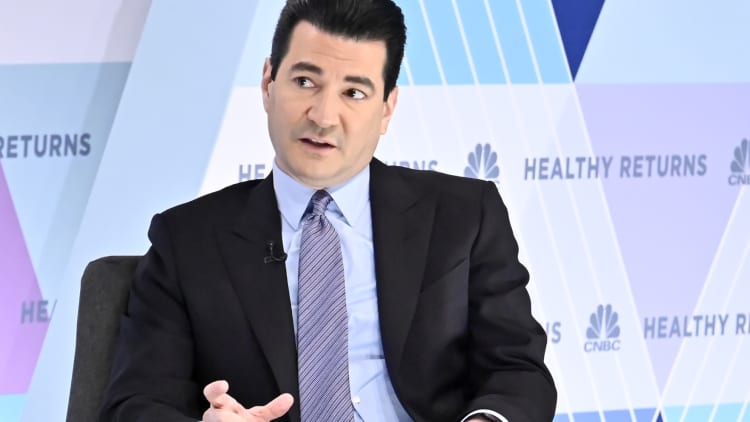As Covid-19 has swept across the globe, the public has gotten a rare glimpse into the long, expensive process of drug development. But while health experts hope for a Covid-19 vaccine sometime in 2021, the reality is that most drugs travel a much longer and complex path to market, due largely to the time and expense of clinical trials. The average cost of bringing a new drug to market has been estimated to be as high as $2.6 billion, with two-thirds of the cost going to clinical trials — about 90% of which end in failure.
Eager to streamline the process, researchers, pharmaceutical companies and a handful of tech start-ups have started experimenting with a new model: virtual clinical trials, also known as remote or decentralized trials. Whereas traditional clinical trials require participants to make frequent in-person visits to a clinic or hospital, virtual trials can allow researchers to recruit patients, gain consent, administer treatment, monitor safety and collect data without the subjects ever leaving home.
A combination of regulatory restrictions and inertia had kept the virtual model from being widely adopted. Then came Covid-19.
Going virtual in a hurry
Throughout the spring, clinics and hospitals that served as trial sites were suddenly inundated with Covid-19 patients, forcing legions of researchers to halt their studies. Stay-at-home orders and fears of transmission also proved to be major interruptions. According to research firm GlobalData, more than 1,100 clinical trials across the U.S. and Europe had been disrupted as of May 20.
Julie Sunderland, managing director and co-founder at Biomatics Capital, a health-care and life-sciences venture firm, said during the CNBC Healthy Returns Conference in May that several of the companies backed by her firm were scrambling to salvage ongoing trials. "I've got companies that are mid-trial in the oncology space where trials are related to acute cases," putting the health of the subjects at risk, she said. Other trials that centered on less urgent conditions were grappling with participants "who won't come in for follow-ups," she said, threatening to sink the entire process. "Companies are needing to adapt."
The crisis has driven a surge of interest in virtual clinical trials. Though no one keeps statistics on how many virtual trials are currently taking place, those who work in the field say the number of studies they are overseeing has risen exponentially since the virus took hold, accelerating a long-simmering trend that could forever change the face of clinical research.
"I think it would have taken us at least five years to generate the adoption that we've seen today over a matter of 60 days," said Michelle Longmire, co-founder and CEO of Medable, a Palo Alto start-up that provides a platform for decentralized clinical trials. "We're seeing this across therapeutic areas, where before someone was like, 'Oh, we can't do that,' and now it's like, 'How do we do it, and not in a week, but tomorrow?'"
In May, Medable raised $25 million in funding from GSR Ventures to extend product development and market adoption. Other prominent start-ups in the space include Science 37, a full-service virtual trial platform, and Unlearn.AI, a service that creates digital twins of patients to expand data sets. In April, Unlearn.A1 received $12 million in Series A financing led by 8VC.
The U.S. Food and Drug Administration also helped clear the path to virtual trials in March by issuing guidelines for clinical studies during the pandemic that included "evaluating alternative methods for assessments, like phone contacts or virtual visits, and offering additional safety monitoring for those trial participants who may no longer have access to investigational product or the investigational site." The Centers for Medicare and Medicaid also relaxed the rules for Medicaid reimbursement for telemedicine visits.
Breaking barriers
In addition to being cost effective, virtual trials solve a number of problems that have plagued the traditional model. Health care advocates have long complained that the travel and time requirements of traditional trials place too high a burden on participants, excluding large swaths of the population like working parents, rural communities and the poor. "It raises questions of who research is open to, who is research benefiting and what kind of data are we collecting?" said Heather Pierce, senior director of science policy and regulatory counsel at the Association of American Medical Colleges.
Those burdens also contribute to high dropout rates, which are a major cause of trial delays and added expense. Eighteen percent of participants leave trials before completion, with scheduling constraints and financial hardship among the most-cited reasons, according to Forte Research.
The virtual model helps addresses both those problems by expanding the pool of possible subjects and reducing the burden on subjects to remain in the study.

However, virtual trials have their own barriers to entry. Subjects typically must have a smartphone, a strong internet connection and fluency in mobile technology, requirements that may exclude older and lower-income participants.
And even with the advancements in mobile apps, monitors and telemedicine platforms that make virtual trials possible, they are still not considered appropriate for all kinds of studies. Phase 1 trials, which focus on patient safety, are not a good fit for the model, said Dr. Jonathan Cotliar, chief medical officer at Science 37. Nor are those that treat acute health problems like stroke, or those that require complicated measurements, like a brain scan or MRI.
"We've had a lot of sponsors in the midst of Phase 1 who are asking us whether we can get involved," said Dr. Cotliar. "We've had to say no."
Later-phase trials for medications that are taken orally or topically, or even those that require a simple injection, are better suited to the model, said Longmire. Dermatological trials, in particular, have become a common subject of virtual trials.
The Road Ahead
Though Covid-19 has accelerated the adoption of decentralized trials, the traditional model is not likely to disappear anytime soon. More likely, say experts, is a future in which most trials hover somewhere between the two poles, incorporating some degree of mobile technology but still requiring some in-person visits. "The goal shouldn't be to do everything in the home," said Longmire. "It should be whatever's going to generate the best science and give people the best clinical care."
Assuming the Covid-19 vaccine is still a year away, it will be some time before clinical trials can return to any semblance of normal. But when they do, there is optimism that they will be changed for the better.
"It's hard and it's frustrating right now, but I think the industry is adapting to this reality," said Biomatics' Sunderland. "My belief is that we're going to be on the other side of it and we're going to see some really interesting and good things happen within the clinical trials space."




